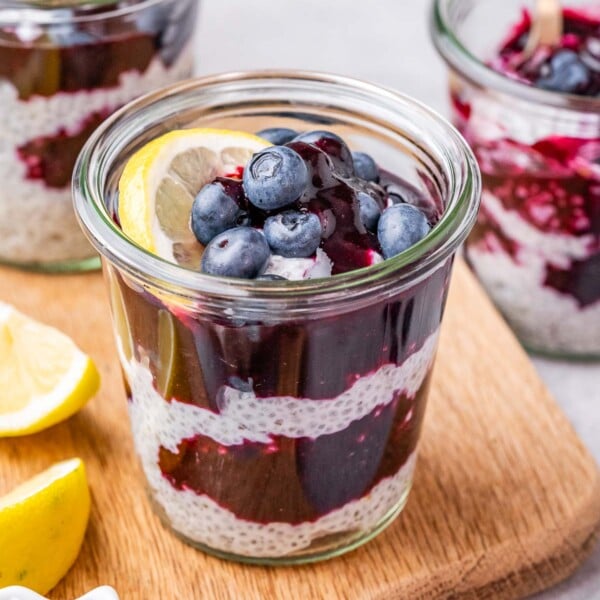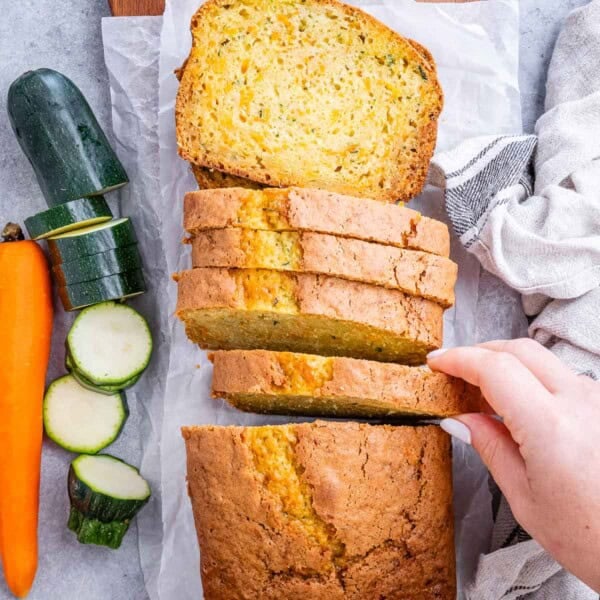This post may contain affiliate links. Please read our disclosure policy.
Want to learn how to make fresh breadcrumbs from bread at home? In this tutorial, I will teach you two ways to make the tastiest breadcrumbs you’ll ever have: fresh and toasted. Homemade Breadcrumbs are great to make whenever you need to use up that extra loaf of bread!

Learning how to make homemade breadcrumbs from bread is easy, quick, and pretty much requires no effort. All you need is a stale loaf of bread and a food processor to create airy, light fluffy bread crumbs that are perfect for all your recipe needs.
You can use any kind of loaf for your bread crumbs depending on what type of texture or flavor you want. I use a little bit of Italian seasoning in this homemade breadcrumb recipe to elevate it a bit–but you can omit it if you want.
Bread crumbs come in handy whenever you’re making meatballs like these chicken parmesan meatballs or casseroles or need an extra topping for your warm delicious soup. These breadcrumbs are a cross between panko and regular–they’re a little light and fluffy but still condensed at the same time. Blend them for however long you would like.
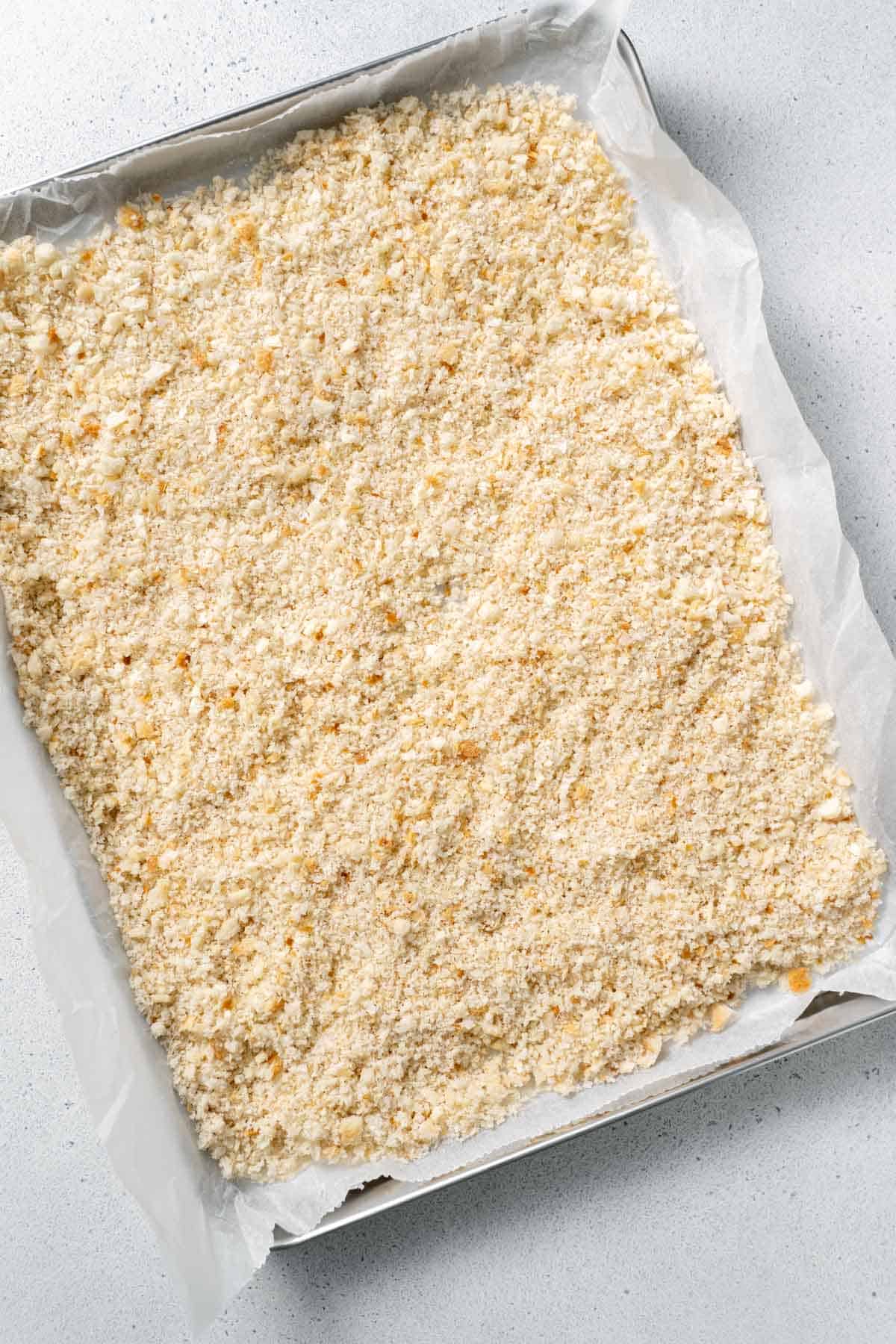
How To Use Breadcrumbs
Here are some of the common ways to use bread crumbs in a variety of homemade recipes:
- Serve breadcrumbs atop your fresh pasta recipe for additional crunch.
- Make your very favorite crab cakes at home.
- Create a gratin with the breadcrumbs.
- Transform pizza toppings.
- Top homemade mac and cheese with crunchy breadcrumbs for extra textures.
- Bread your chicken breasts or cutlets before cooking them in the oven or on the stovetop.

Highlights
- Quick and easy: This homemade breadcrumb recipe is so simple! Just place chunks of bread in a food processor, blend, and you’re ready to enjoy soft bread crumbs. There’s one extra step for toasty breadcrumbs.
- Delicious: The Italian seasoning gives the crumbs a little herbal flavor that is warm and inviting. You won’t have to worry about extra seasoning in your recipe.
- Perfect for meal prep: Get ahead and prep your breadcrumbs so you know you can always find some in your kitchen. I recommend placing them in jars.
- Cost-effective: Learning how to make breadcrumbs at home is one of the easiest ways to save money! With this recipe, you’re not paying for extra packaging and other costs.

How To Make Breadcrumbs
In this recipe, I will teach you TWO different ways to make your bread crumbs at home. If you want soft breadcrumbs, I have you covered. Want them toasted with a slight crunch? I have you covered there, too.
For Fresh Unbaked Breadcrumbs
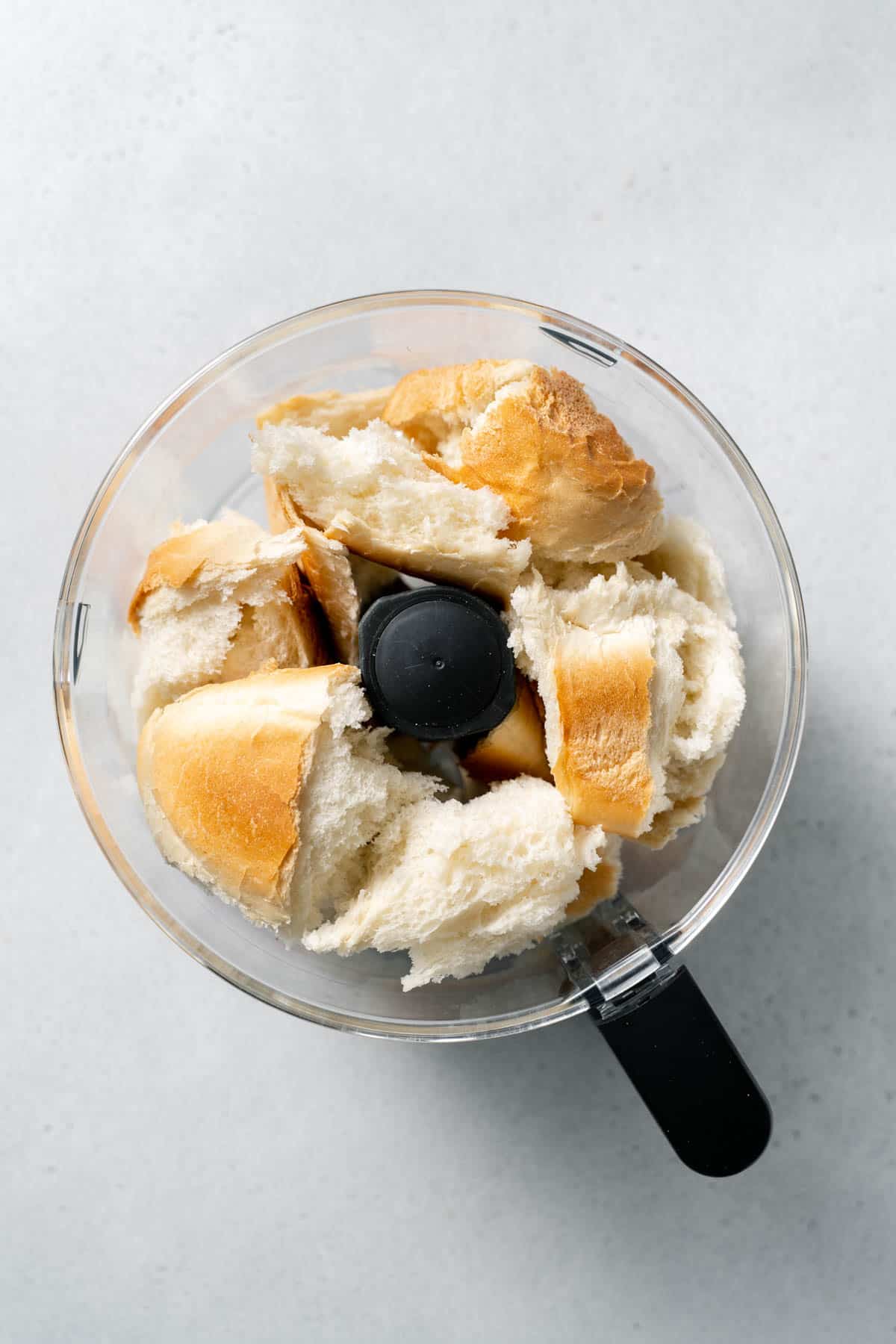

First, tear your loaf of bread into small pieces.
Next, place the bread pieces in a food processor, then pulse until the breadcrumbs are fine in texture and consistency. Remove the breadcrumbs from the food processor, then use them as needed!
For Baked and Toasted Breadcrumbs
First, preheat your oven to 300 degrees Fahrenheit or 150 degrees Celsius.

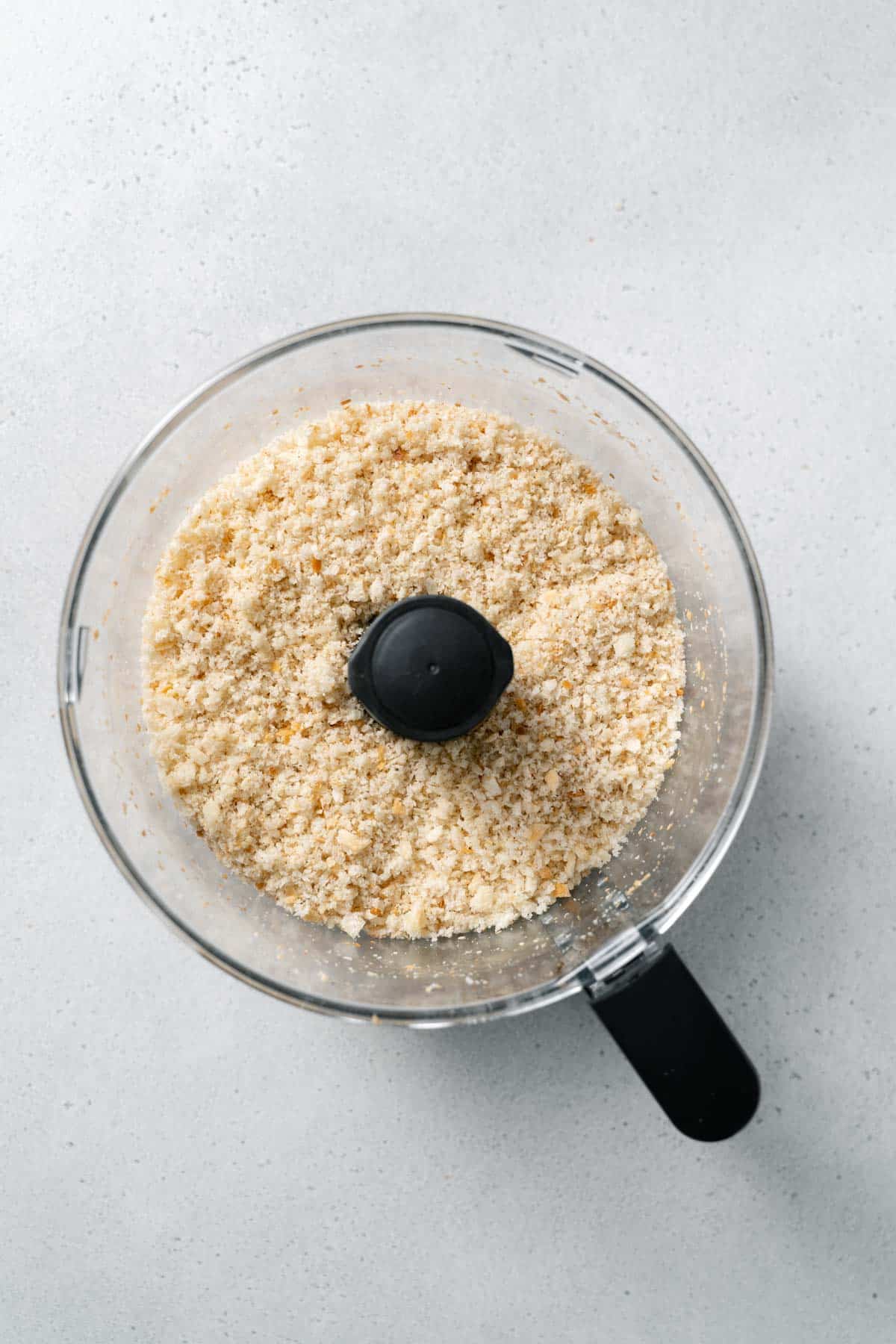
Grab your stale loaf of bread and tear it into small pieces. Place the stale bread pieces in a food processor and pulse until the pieces are light and fine.
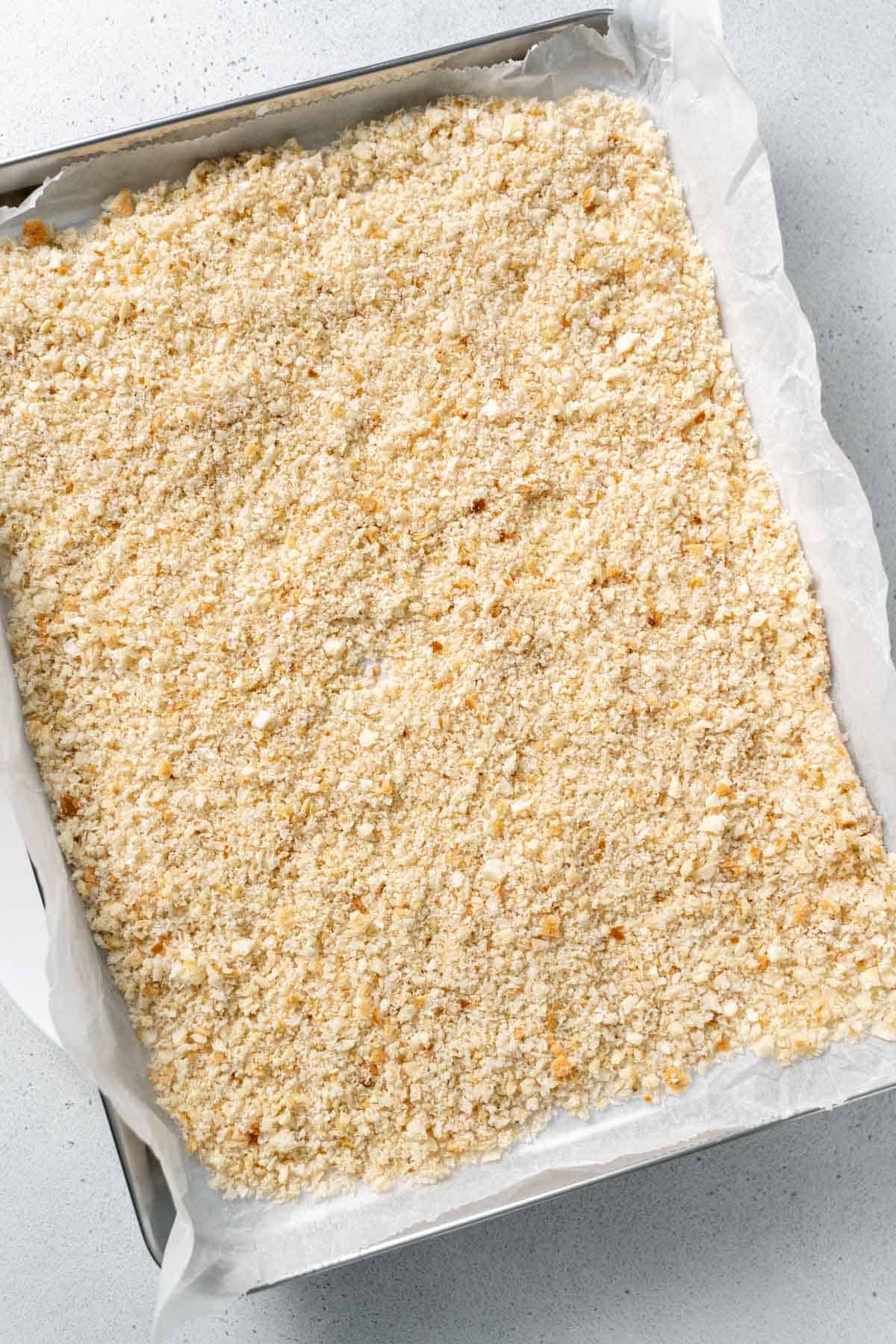
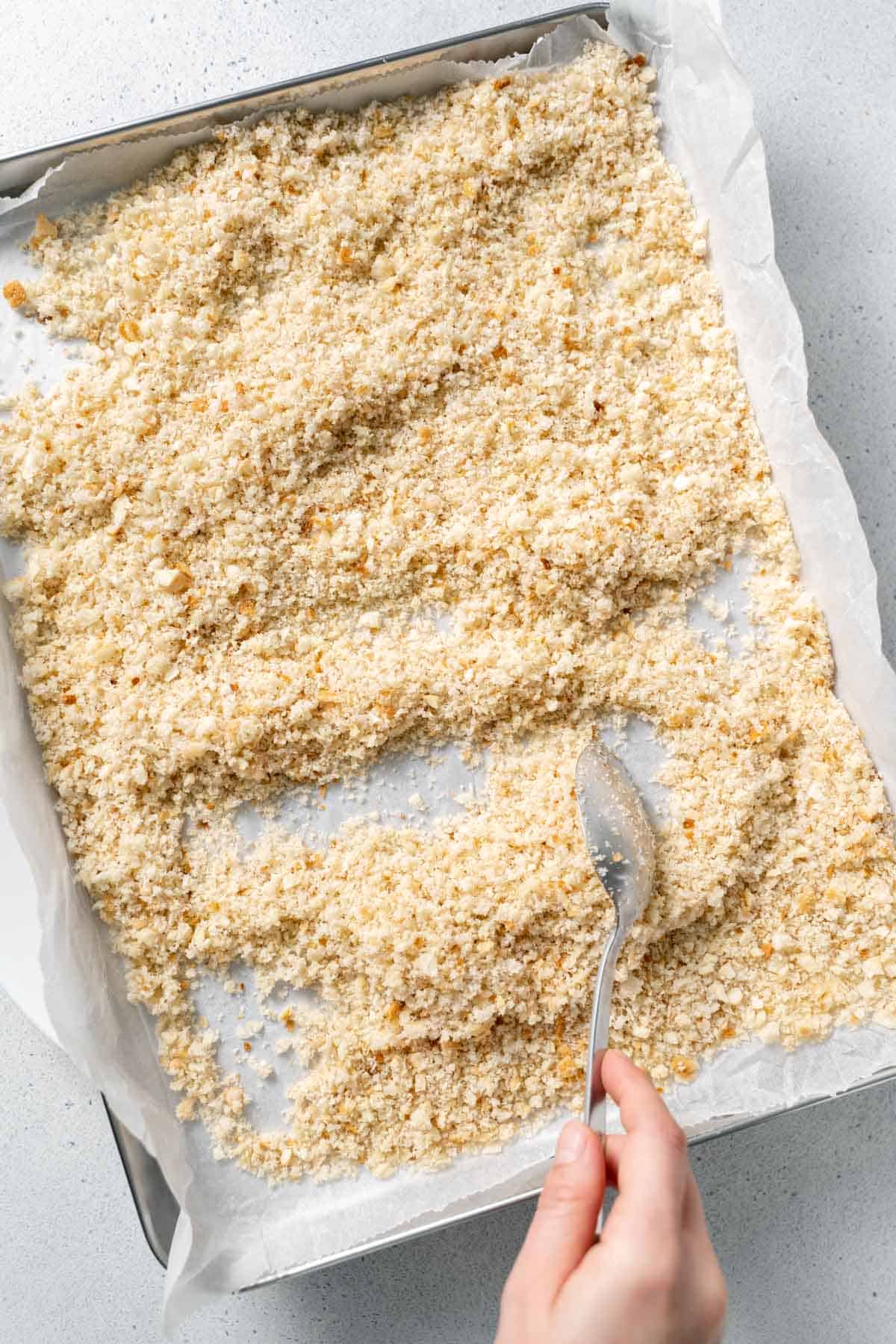
Next, add the crumbs to a baking sheet with parchment paper. If adding Italian seasoning, you’ll want to do it in this step. Stir the crumbs and seasoning with a spoon or your fingers.
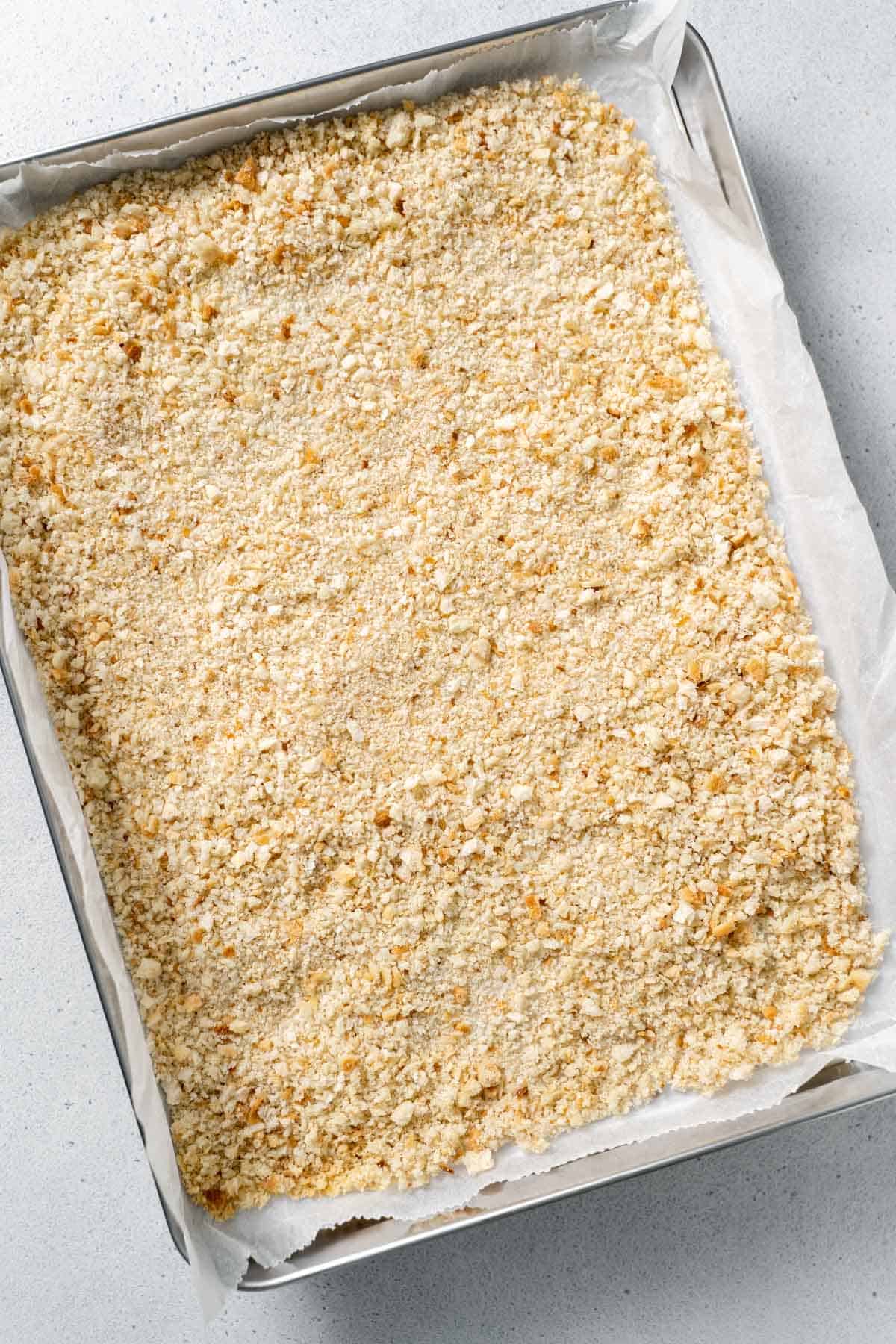
Bake the breadcrumbs in the preheated oven for 20 minutes until they are dry and lightly golden brown. Stir the breadcrumbs every five minutes.
Allow the breadcrumbs to completely cool before storing. Enjoy!
Frequently Asked Questions
If you do not have a food processor, place the dry bread in a sealed bag. Close the bag and smash the bread with a rolling pin or mallet to break the bread up into small pieces.
You’ll want to toast your breadcrumbs in the oven to make them dry and crunchy.
Yes! If you do not have a food processor but have a blender, then you can easily create your breadcrumbs this way.
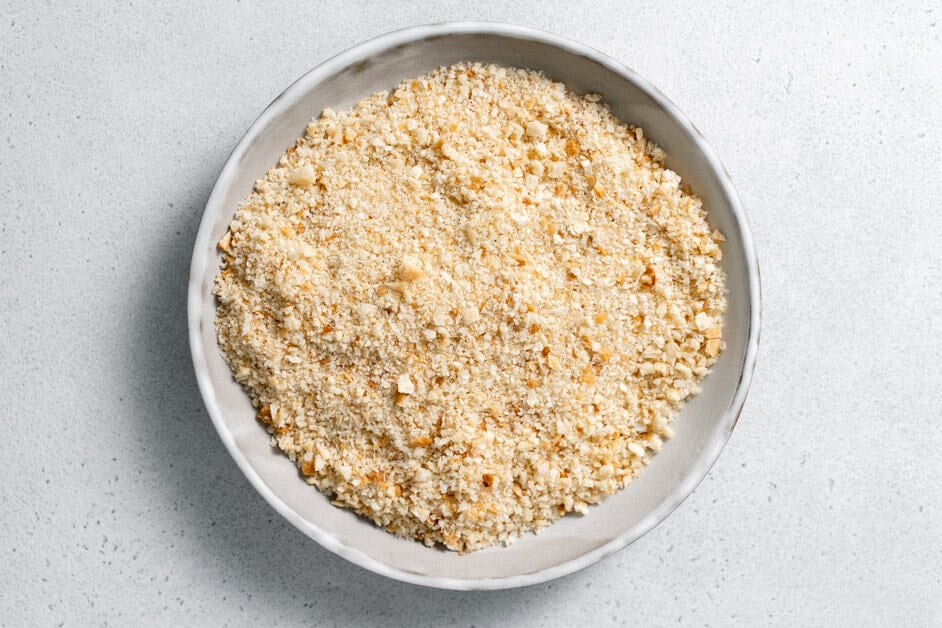
Notes and Tips
- How to store: Place your breadcrumbs in a sealed jar and store them in your cupboard for up to one year. If you live in a humid environment, you’ll need to store your breadcrumbs in the freezer.
- Any kind of loaf of bread will work for this breadcrumb recipe! Just use whatever stale loaf of bread you have in your home whenever you need to make breadcrumbs.
- Omit the Italian seasoning or use a different herb blend for extra delicious flavors.
Other Recipes You Might Enjoy
- How To Make Almond Milk
- Homemade Almond Butter
- How To Make Croutons
- Homemade Taco Seasoning
- Vegan Mashed Potatoes
- How to make Apple Sauce

If you try a recipe and you like it, leave me some feedback in the comment section below, and don’t forget to rate it! I would love it if you shared it with friends and family.
FOLLOW me on FACEBOOK | INSTAGRAM | PINTEREST | TWITTER for all of my latest blog posts and recipes.

